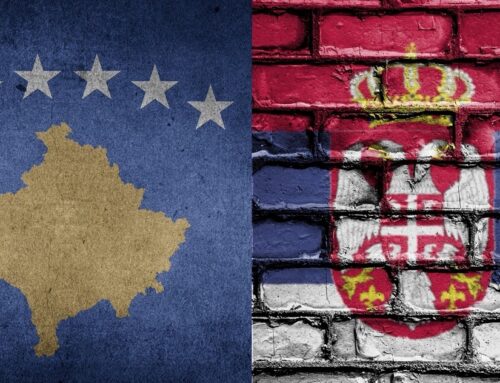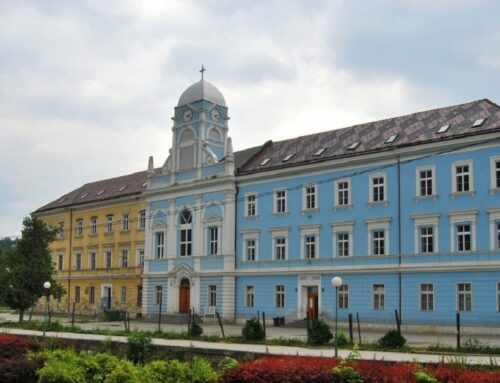The aim of the EU’s policy in the Western Balkans is “to secure stable, prosperous and well-functioning democratic societies on a steady path towards EU integration”. To achieve this, the EU has several instruments at hand: The Stabilisation and Association Process (SAP), the accession process, regional cooperation, and visa-free travel.
After the Yugoslav wars ended, the EU emerged as one of the main international actors in the region. Official framework for establishing relations with the countries of the region was formed in April of 1997 by the Council Conclusions. In 1999, the EU adopted SAP, an ambitious road-map for the promotion of peace, stability, and prosperity in the Western Balkans. It consists of three goals which represent the agenda for the negotiations between the European Union and the Western Balkans countries. These are stabilization of the region and transition to a market economy; promotion of regional cooperation; and possible membership in the EU European Council.
In the following years, the EU kept a strong presence in the region. It assumed the responsibility for both military missions and civilian roles from NATO and the UN respectively and deployed a variety of military, civilian, and enlargement instruments. At the EU-Western Balkans Summit of June 2003 in Thessaloniki, EU reiterated its support for the European integration of Western Balkans and adopted the Thessaloniki Declaration and Thessaloniki Agenda for the Western Balkans.
Thereafter, however, the process came to a halt and EU’s policy in the Western Balkans somewhat disintegrated. This was in part due to the block’s preoccupation with the financial crisis and internal rifts. The crisis reduced the lure of the European integration and the Western Balkan countries started turning elsewhere for alliances. The region saw the rise of populism, authoritarianism, and a ‘Europeanisation fatigue’, as more and more experts cast doubt over the real EU’s objectives: was the block striving for real reform or the maintenance of the status quo?
In light of the rising Euroscepticism, the German government launched the Berlin Process in 2014 to demonstrate “its support for the prospect of European integration for the countries of the Western Balkans”. The Berlin Summit established a four-year agenda with the goal to support the region to meet the conditions for EU accession. To implement the reform framework and to boost regional cooperation among the Western Balkan countries and their European integration, the regional and European stakeholders gather at Western Balkan Summits, Civil Society Forums, Business Forums and Youth Forums. Initially planned for the duration of four years (2014–2018), it has spread into a multifaceted process with no foreseeable ending.
However, despite these positive developments, the political messages from the EU indicate that European integration of the region will not be accelerated. The Covid-19 crisis further exacerbated the situation – the EU was slow to react and incorporate the Western Balkans into its crisis response, while other powers, namely China, Turkey, and Russia, hurried to deliver aid to the region. Disinformation, anti-European sentiments, and distrust in EU increased substantially and did not cease even after EU regained momentum by pledging €3.3 billion package for the Western Balkans to tackle the immediate health crisis, support the investments, and socio-economic recovery. In May 2020, the Zagreb Balkan summit was held in form of video conference and culminated in the adoption of Zagreb declaration that reiterated EU’s explicit support for the European perspective of the Western Balkans.
However, Zagreb Summit failed to provide a clear roadmap for EU policy in the Western Balkans, and after more than two decades of EU’s involvement in the region, it is becoming clear that European strategy does not work. EU’s initial goal to fully integrate the region proved fruitful only for Slovenia and Croatia. For others, the ‘European dream’ seems to be out of reach, be it because of the slow reform process or the reluctance of member states to open the door of the EU. So far, Albania, North Macedonia, Montenegro, and Serbia have the status of a candidate country, while Bosnia-Herzegovina and Kosovo are potential candidates. It does not seem obvious that their status is going to change in the near future, and, without a clear accession perspective, conditionality cannot bring about systematic Europeanisation reforms. To make matters worse, internal disputes, Brexit, the migrant crisis, and other underlying structural problems are reducing the attractiveness of the EU membership, making way for other powers to intervene in the region.
If EU is to maintain its position of influence in the region, it has to provide a clear roadmap for the accession of Balkan countries and it has to do so in a coherent voice, assuring that membership is available for all Western Balkan countries once they meet the conditions. EU also has to improve its credibility in the region by improving its media strategy, facilitate citizens’ participation, and tackle the soaring corruption and nepotism in those countries. It should avoid making deals with despots for short-term benefits and move toward changing the status quo that has so far begotten only autocratic leaders, Euroscepticism, and ethno-nationalistic tensions.





